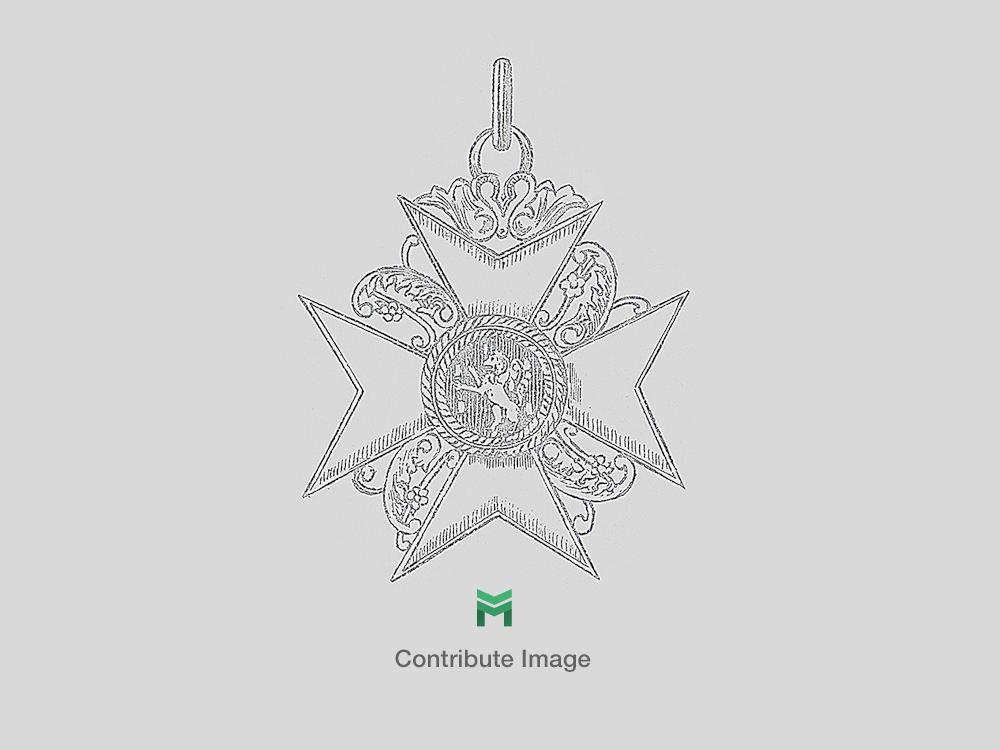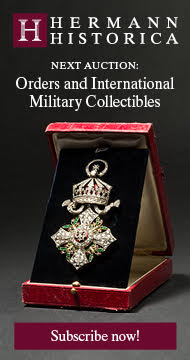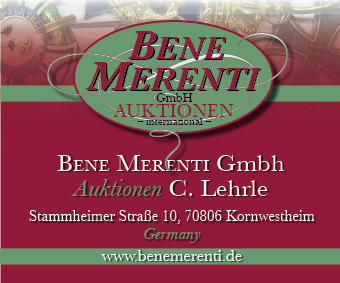House Order of the Golden Lion, Type II, Commander with Swords
CATEGORY: Version
SKU: 01.HSK.0101.303.01.000
Estimated market value:

Estimated market value:
A Maltese cross, constructed of gold and silver, with gold crossed swords through the centre. A gold mobile crown is attached via loop and eyelet to the 12 o’clock arm. The cross arms are enameled in carmine with white enamel edges, which in turn feature a gold inner and outer border. The centre medallion is surrounded by an eight-sided star in silver. The obverse medallion is enameled in blue and features a crowned gold Hessian lion walking to the viewer’s left. The medallion’s ring is enameled in carmine with gold borders and the golden inscription ‘VIRTUTE ET FIDELITATE’ (‘for virtue and loyalty’). The reverse medallion is blue enameled with a gold border and the monogram ‘WK’ in the centre. The top of the crown features a loop for suspension, on a dark red ribbon.
The House Order of the Golden Lion was instituted by Landgraf Friedrich II of Hesse-Kassel and was dedicated to Saint Elisabeth of Hungary, an ancestor of the founder. The order was conferred upon individuals who demonstrated exceptional civil or military merit.
In 1818, Prince-Elector Wilhelm I added three additional grades to the order, and from this point onward, the awards of the order featured his name or initials on the reverse. The classes now were: Grand Cross, I Class Commander, II Class Commander, and Knight Cross. Although the Grand Cross is documented, there is very limited information on it.
On August 20, 1851, the order was again reduced to one class, and the three lower classes were assimilated into the newly established Wilhelm Order.
The House Order of the Golden Lion and the Wilhelm Order feature a very similar obverse and reverse design. The main difference between them is that the lion featured on the obverse of the House Order of the Golden Lion has the back paw held higher than the front paw, while the lion featured on the obverse of the Wilhelm Order has both paws held at the same height.
Following the death of the last prince-elector of Hesse-Kassel, the order was taken over by Grand Duke Ludwig II of Hesse-Darmstadt. On June 6, 1876, the order was given new statutes and was introduced as a Grand Ducal Order.
The Grand Cross of the order was equal to the Grand Cross of the Ludwig Order.
The order became obsolete in 1918, following the abdication of the last Grand Duke of Hesse-Darmstadt.
The I Class Commander was awarded with a Breast Star, the II Class was not.
The Commander Cross with crossed swords was awarded for military merit.

Comments
Sign in to comment and reply.


Scroll Top